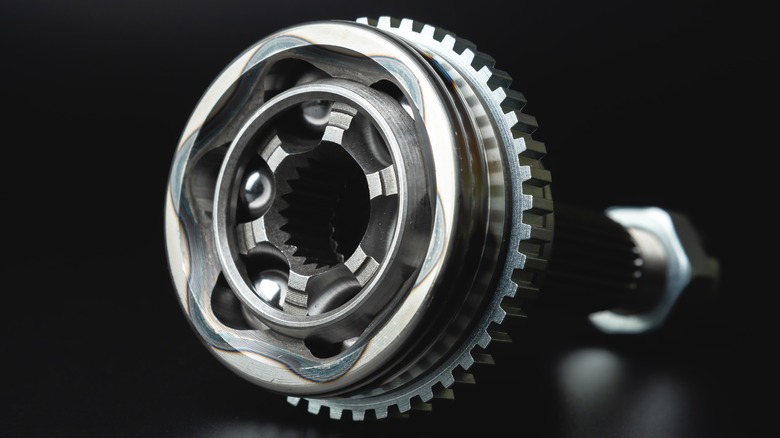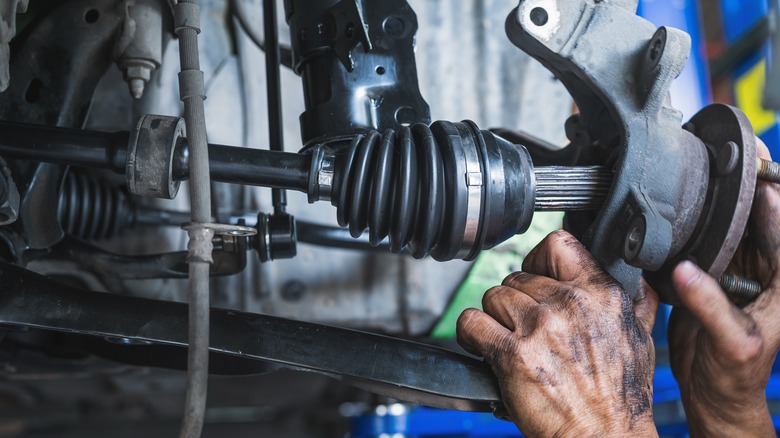What Does It Mean If Your Car Is Making A Clicking Sound When You Turn?
When a vehicle makes a distinct clicking sound while turning, it is most likely an issue with the CV joints, which are a part of the car's front axle that transfers power from the engine to the wheels while turning or driving on uneven surfaces. Each one is protected by a rubber or plastic boot that contains special grease to keep them lubricated. If this gets damaged or wears out, it can lead to a significant loss of lubrication or allow dirt and debris into the joint.
The click coming from the critical part of the suspension system may seem like a minor irritation, but the noise may progressively get louder if the matter isn't addressed. Ignoring it is not recommended because it can escalate the problem and, even worse, present a situation where the part may fail altogether, which may require costly repairs while simultaneously rendering the vehicle completely out of use. As such, this warning sign that the CV joints are nearing the end of their service life requires quick action to keep the problem from getting any worse.
How to fix a clicking sound coming from your car
There are several steps that can be taken to resolve a clicking sound caused by CV joint problems. The first thing people should do is to seek a mechanic's expert opinion. While some car enthusiasts might consider DIY repairs, complications with these joints are notoriously complex and require specialized skills and tools. A professional will not only confirm whether they happen to be the culprit causing the ticking commotion in the handling but also have the means to check for any other potential problems that could be causing the noise, as other parts of the automobile could also be contributing to the problem.
If an initial assessment indicates that the source isn't a problem with the CV joints, several other factors could be at play. It could be related to the steering system, suspension components, or even the wheel bearings. Each of these plays a critical role in how your car functions and problems with any of these systems could be causing the irritating tick. To be safe, it's best to have these potential issues examined and resolved promptly because delaying repairs not only risks further damage but also can compromise an individual's safe and smooth ride.

